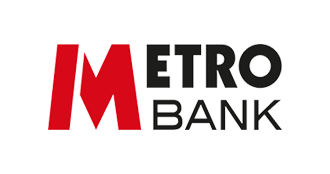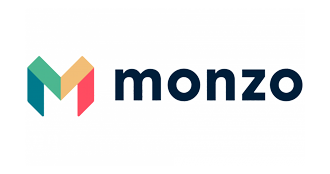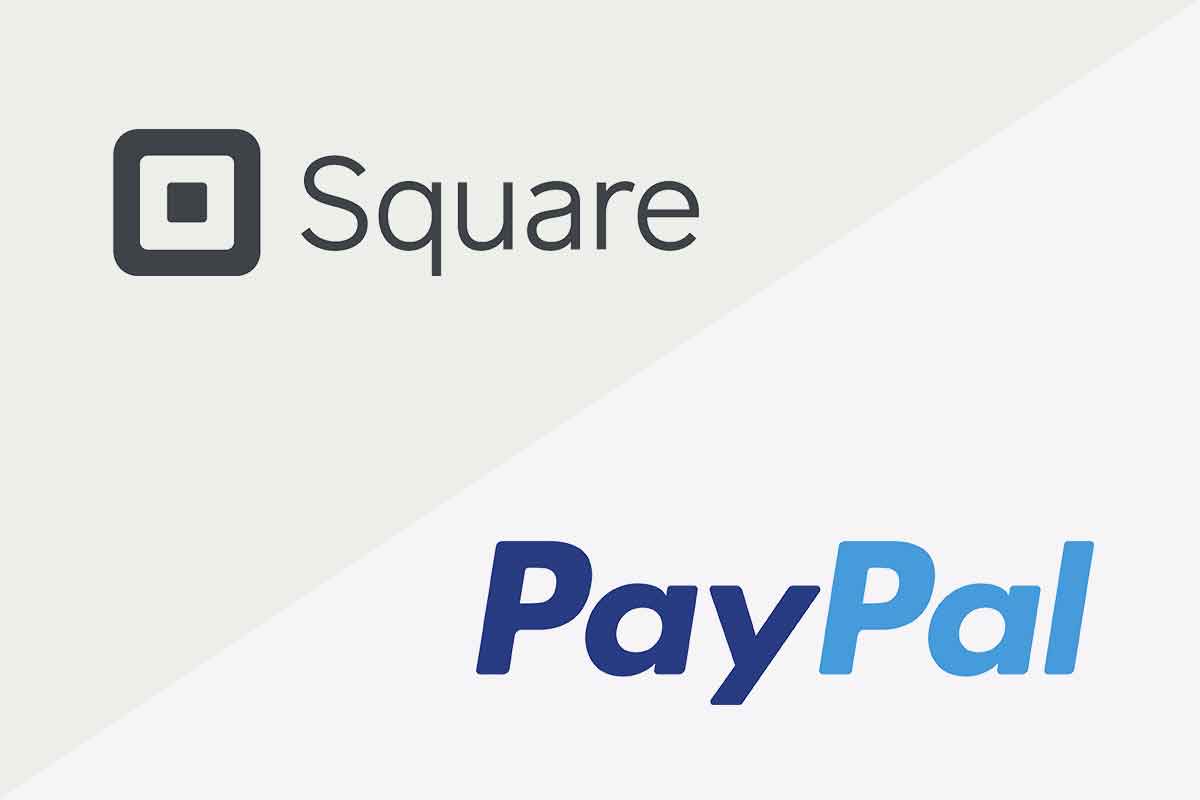The world of business is continually evolving, particularly within the realm of payments processing. Companies now need to manage transactions from a variety of channels, whether that’s in-person, online, or mobile. Two of the heavyweights that businesses often consider for this purpose are Square vs PayPal.
Here, we delve into a comprehensive comparison of these providers, covering aspects such as fees, functionality, customer support, and security.
Featured pro tools
Square vs PayPal
| Feature/ Fee | Square | PayPal |
|---|---|---|
| Card-present transaction fee | 1.75% | 2.9% + 30p |
| Card-not-present transaction fee | 2.5% | 2.9% + 30p |
| International sales fee | 2.5% | 4.4% + fixed fee based on currency |
| Cross-border transfer fee | N/A | 1.5% |
| Mobile payment hardware | Square Reader for Contactless and Chip (£19 + VAT) | PayPal Here card readers (Chip and Swipe Reader £35 + VAT; Chip and Tap Reader £59 + VAT) |
| POS system hardware | Square Terminal (£199 + VAT), Square Register (£599 + VAT), Square Stand for iPad (£159 + VAT) | Through integrations with Vend, Epos Now, etc. (prices vary) |
| eCommerce platform | Square Online (free to start, transaction fees apply) | PayPal Checkout (free to implement, transaction fees apply) |
| Customer support | Phone support (6 AM – 6 PM PT, Mon-Fri), Email, Live chat, Knowledge base | Phone support (8 AM – 8:30 PM weekdays, 8 AM – 6:30 PM weekends), Email, Knowledge base, Community forums |
| Security | PCI DSS compliant, encryption, tokenisation, dispute management | PCI DSS compliant, encryption, sophisticated fraud protection, comprehensive customer protection |
Please note: As of July 2023, pricing and features are subject to change. Always check the most recent data on the providers’ websites.
Transaction fees
Understanding transaction fees is pivotal in selecting a payment processor. They are a significant cost that can erode your profit margin if not managed effectively.
Square
Square operates on a straightforward fee structure. For card-present transactions, that is, payments where the customer physically swipes, dips, or taps their card, the fee is 1.75%. For card-not-present transactions, which includes online and keyed-in transactions, the fee rises to 2.5%.
 |
Wallester Business ✓ Virtual & Physical Cards ✓ No Setup Fees ✓ No Monthly Fees Pricing Trial period Contact |
|
 |
Revolut Business ✓ Business Current Account ✓ Award-Winning Mobile App ✓ Quick & Easy Application Process Pricing Trial period Contact |
|
 |
Tide Business Bank Accounts ✓ Free, Plus, or Pro Account ✓ iOS & Android Mobile App ✓ Upload & Auto-Match Receipts Pricing Trial period Contact |
|
 |
Card One Money ✓ No Credit Checks ✓ Simple Fees ✓ Up to 3.5% Cashback Pricing Trial period Contact |
|
 |
ANNA Money ✓ Apply in 10 minutes ✓ Bookkeeping & Payroll Tools ✓ User-Friendly Mobile App Pricing Trial period Contact |
|
 |
Co-Op Business Banking ✓ Business Current Account ✓ Online, App & High Street Banking ✓ Quick & Easy Application Process Pricing Trial period Contact |
|
 |
HSBC Business Banking ✓ Business Current Account ✓ In-Branch, Online & App Banking ✓ FSCS Protected Pricing Trial period Contact |
|
 |
Metro Business Banking ✓ Business Current Account ✓ High Street Presence ✓ FSCS Protected Pricing Trial period Contact |
|
 |
Mettle Business Banking ✓ Business Bank Account ✓ Online & App ✓ Quick & Easy Application Process Pricing Trial period Contact |
|
 |
Monzo Business Banking ✓ Business Current Account ✓ Dedicated mobile app experience ✓ FSCS Protected Pricing Trial period Contact |
|
 |
Virgin Money ✓ Business M Account ✓ In-Store, Online & App Banking ✓ Insights & Forecasting Platform Pricing Trial period Contact |
PayPal
PayPal’s fee structure is slightly more complex. For sales within the UK, PayPal charges 2.9% + 30p per transaction. For international sales, the fee is 4.4% + fixed fee based on the currency received. Additionally, there is a charge of 1.5% for cross-border transfers.
In terms of transaction fees, Square has a slight edge with a lower fee for card-present transactions. However, the best choice depends on your specific business model and the types of transactions you predominantly handle.
Functionality and ease of use
A system could have the most competitive fees in the world, but if it’s not user-friendly, it can create headaches for your staff and customers alike.
Square
Square is celebrated for its intuitive and straightforward interface, both for businesses and customers. From setting up the card reader to managing the point-of-sale system, the process is user-friendly. For online sellers, Square offers an eCommerce platform that integrates with several other platforms like Wix, WooCommerce, and more.
PayPal
PayPal, on the other hand, is noted for its ubiquity. Most consumers are already familiar with how PayPal operates, making it a smooth experience for them. For businesses, PayPal offers integrations with a multitude of platforms including Shopify, WooCommerce, and others. However, setting up PayPal to work seamlessly with your online store or POS system can be slightly more complex compared to Square.
When it comes to functionality and ease of use, it’s a toss-up between Square’s user-friendly interface and PayPal’s universal presence and familiarity.
Hardware
An important aspect to consider when comparing Square and PayPal as payment processing providers is the available hardware. The hardware required will significantly depend on whether your business conducts sales in-person or online.
Square
Square offers an array of hardware that is optimised for different kinds of businesses. For mobile businesses, there’s the Square Reader for Contactless and Chip that pairs with your smartphone or tablet and accepts chip and contactless payments.
For a brick-and-mortar retail business or restaurant, there are options like the Square Terminal or the Square Register, which are standalone units that combine payment processing and receipt printing.
Furthermore, Square also offers a complete point-of-sale system with its Square Stand for iPad, turning your tablet into a full-fledged cash register.
PayPal
PayPal’s hardware offerings are primarily focused on mobile businesses. Their PayPal Here card readers connect to your smartphone or tablet and accept chip, swipe, and contactless payments.
There are two options available: the Chip and Swipe Reader, which is a basic model, and the Chip and Tap Reader, which also accepts contactless payments.
For larger businesses looking for a full-scale point-of-sale system, PayPal integrates with several POS system providers such as Vend and Epos Now.
In terms of hardware, Square provides a more comprehensive range of options, catering to the needs of businesses from small-scale mobile vendors to larger, more established retailers.
However, PayPal’s integrations with a variety of POS systems offer flexibility for businesses to tailor their point-of-sale setup.
Your choice would be dictated by the needs of your business and how you interact with your customers.
Customer support
Effective customer support can make a significant difference when you encounter an issue that needs resolving.
Square
Square offers a range of customer support options including phone support, email, live chat, and a comprehensive self-service knowledge base. However, it’s worth noting that phone support is not available 24/7 and only operates from 6 AM to 6 PM Monday to Friday.
PayPal
PayPal offers customer support via phone and email. They also provide a robust self-service section on their website, including community forums. PayPal’s phone support is available more hours than Square, running from 8 AM to 8:30 PM on weekdays and 8 AM to 6:30 PM on weekends.
In terms of customer support, PayPal has a slight advantage due to its longer phone support hours.
Security
With the increasing prevalence of cybercrime, having a secure payments processor is non-negotiable.
Square
Square adheres to the Payment Card Industry Data Security Standard (PCI DSS). The company uses encryption and tokenisation to protect card information. Moreover, it offers a dispute management service to deal with chargebacks and fraud disputes.
PayPal
PayPal also complies with PCI DSS and utilises sophisticated fraud protection algorithms to detect suspicious activity. In terms of consumer protection, PayPal is known for its comprehensive policies that safeguard customers against fraud and non-delivery of goods.
Both Square and PayPal take security seriously and offer robust measures to protect against fraud and cyber threats.
Conclusion
Deciding between Square and PayPal as your payment processing provider is not a clear-cut decision; instead, it hinges on your specific business requirements.
Square’s simple fee structure and user-friendly interface may appeal to small businesses and brick-and-mortar stores, while PayPal’s universal recognition and slightly more accessible customer support may suit online merchants with international sales.
Either way, you’re selecting a robust, secure, and sophisticated platform capable of handling your business transactions. It’s advised to reflect on your business needs, evaluate both options carefully, and even consider trialling each system to see which suits your operations best.
FAQ
For card-present transactions, Square charges 1.75%, while PayPal charges 2.9% plus 30p. For online or keyed-in transactions, Square charges 2.5% and PayPal charges the same 2.9% plus 30p.
Yes, many businesses choose to offer multiple payment options, including both Square and PayPal, to provide flexibility for their customers.
Both Square and PayPal prioritise user-friendly interfaces. However, some users find Square’s system more straightforward to navigate, while others appreciate the widespread familiarity of PayPal.
Square provides a range of hardware options from mobile readers to full point-of-sale systems. PayPal offers mobile card readers and also integrates with a variety of point-of-sale systems.
Both providers offer multiple customer support options, but PayPal offers longer phone support hours compared to Square.
Both Square and PayPal comply with PCI DSS and use robust measures such as encryption and tokenisation to secure transactions.
Yes, both Square and PayPal can be integrated with popular eCommerce platforms like WooCommerce, Shopify, and many others.
Yes, both Square and PayPal are available in many countries around the world, with specific terms and conditions applying in each location.
Both Square and PayPal have comprehensive policies for managing refunds. The refund process is typically handled within their respective systems.
Square and PayPal both offer dispute resolution services to help businesses handle chargebacks and resolve conflicts with customers.
For Square, funds are typically available in your bank account within one to two business days. PayPal funds are usually available immediately in your PayPal account.
Square’s hardware is generally more expensive than PayPal’s, reflecting a broader range of offerings. However, the specific pricing depends on the exact hardware chosen.
Both Square and PayPal offer mobile card readers that connect to your device and allow you to take payments on the go.
Yes, both Square and PayPal provide invoicing solutions that allow businesses to create, send, and manage invoices directly within their platforms.
Yes, non-profits can use both Square and PayPal for their transactions. PayPal offers discounted transaction rates for registered non-profit organisations.
No, both Square and PayPal operate on a pay-per-transaction basis, meaning there are no setup or monthly fees.
Yes, both Square and PayPal offer virtual terminals, allowing businesses to enter card details manually for phone or mail order payments.
Yes, both Square and PayPal can be integrated with popular accounting software such as QuickBooks and Xero, streamlining your financial management.
Both Square and PayPal offer a range of solutions to support multichannel selling, including integrations with eCommerce platforms, mobile card readers, and in-person point-of-sale systems.
Square operates in the local currency of the country where your business is located. PayPal, on the other hand, supports payments in multiple currencies, making it a good choice for businesses with international customers.

